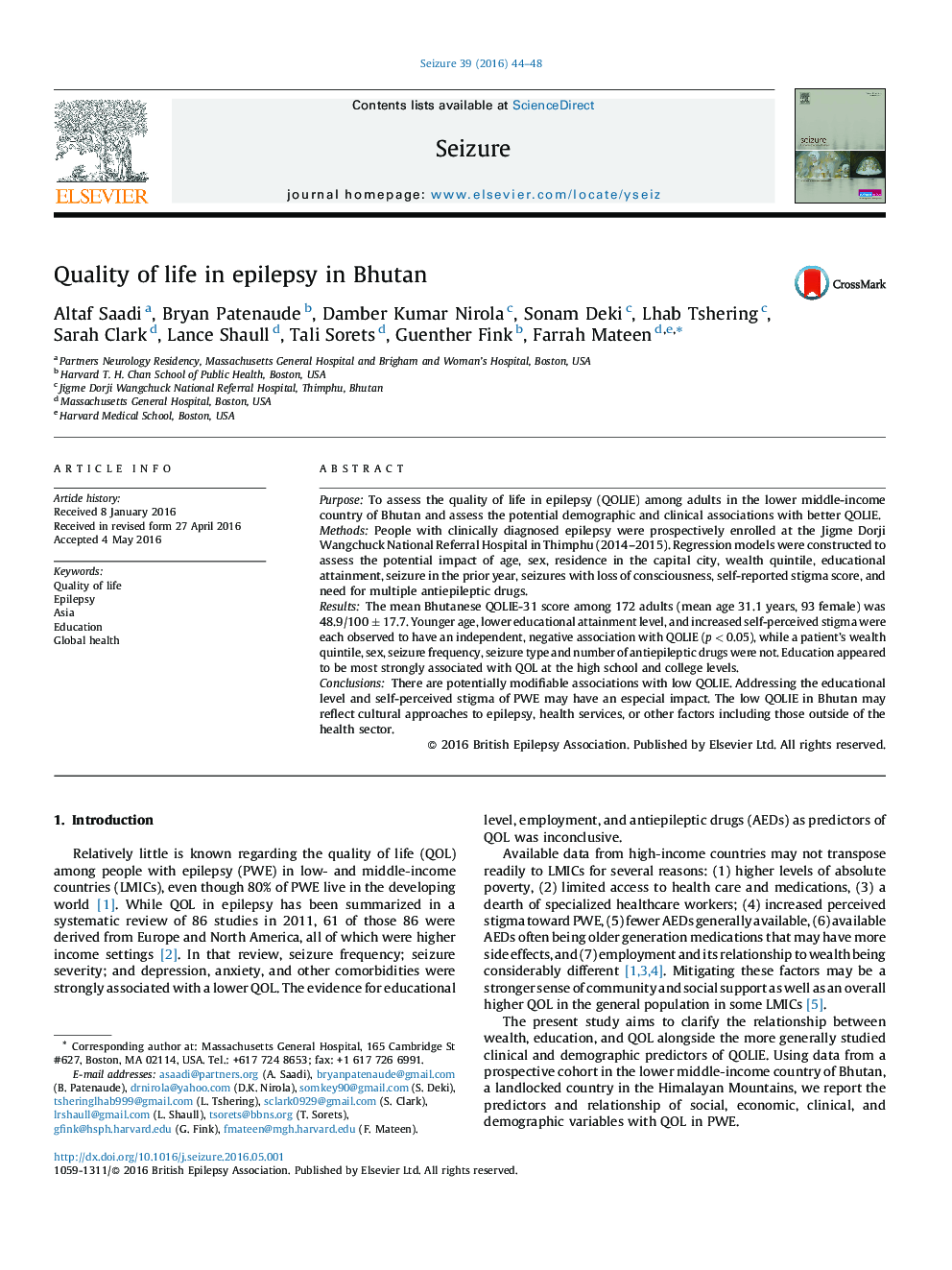| Article ID | Journal | Published Year | Pages | File Type |
|---|---|---|---|---|
| 340429 | Seizure | 2016 | 5 Pages |
•In Bhutan, the mean quality of life in epilepsy-31 (QOLIE-31) score was low.•Younger age, less education, and higher stigma were negatively associated.•No independent association of personal wealth on QOLIE-31 was observed.
PurposeTo assess the quality of life in epilepsy (QOLIE) among adults in the lower middle-income country of Bhutan and assess the potential demographic and clinical associations with better QOLIE.MethodsPeople with clinically diagnosed epilepsy were prospectively enrolled at the Jigme Dorji Wangchuck National Referral Hospital in Thimphu (2014–2015). Regression models were constructed to assess the potential impact of age, sex, residence in the capital city, wealth quintile, educational attainment, seizure in the prior year, seizures with loss of consciousness, self-reported stigma score, and need for multiple antiepileptic drugs.ResultsThe mean Bhutanese QOLIE-31 score among 172 adults (mean age 31.1 years, 93 female) was 48.9/100 ± 17.7. Younger age, lower educational attainment level, and increased self-perceived stigma were each observed to have an independent, negative association with QOLIE (p < 0.05), while a patient's wealth quintile, sex, seizure frequency, seizure type and number of antiepileptic drugs were not. Education appeared to be most strongly associated with QOL at the high school and college levels.ConclusionsThere are potentially modifiable associations with low QOLIE. Addressing the educational level and self-perceived stigma of PWE may have an especial impact. The low QOLIE in Bhutan may reflect cultural approaches to epilepsy, health services, or other factors including those outside of the health sector.
